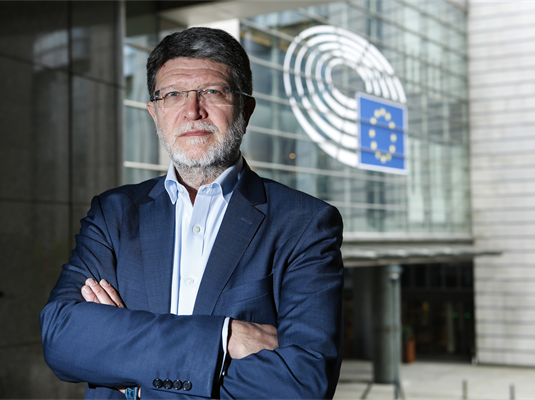Russian aggression against Ukraine gave the main stamp and to the greatest extent shaped the conclusions of yesterday's vote of the European Parliament on the reports on the implementation of the common foreign and security policy, as well as the security and defense policy of the European Union. For years, the EU's common foreign, security and defense policies have been its weakest common policies, but now they have come under enormous pressure that has forced the Union to change its approach, as the results of the vote show. The reports show that the Union, in accordance with its capabilities, has done a lot in a relatively short time to harmonize these policies and for the EU to respond more quickly and effectively to crises such as war on its borders - says Tonino Picula, the European Parliament's rapporteur for enlargement policy , relations with the USA and member of the Foreign Policy Committee.
That Resolution calls for greater involvement of the European Union in the world and proposes that the EU get a seat in the UN Security Council, and Serbia was once again asked to harmonize with the foreign policy positions of the European Union, including the policy towards Russian aggression against Ukraine.
The Croatian MEP particularly highlighted the adoption of the decision to introduce the principle of qualified majority in decision-making on issues of European security and defense policy.
- It has been shown that the principle of consensus in deciding on all common issues is not effective enough to solve major crises. It is known that Viktor Orban, as Putin's Trojan horse, used the principle of consensus to block joint decisions of the Union in matters of financial, political and defense support to Ukraine by the EU. But it is also a principle that is an integral part of my Report with recommendations for EU enlargement, which was previously adopted by a large majority by the European Parliament. Another important conclusion of the report is the need for the EU to continue operationalizing its strategic autonomy, both in relation to Russia and in relation to the USA and China. The EU has already significantly reduced the total consumption of Russian energy sources, and now it is time to continue reducing the dependence on the defense protection of the USA within the NATO umbrella, and to reduce the dependence on the Chinese market, first of all through the approach of re-industrialization of Europe - said Picula.
He says that the Russian aggression against Ukraine gave a new wind behind the EU enlargement process, which is extremely important for Croatia.
- Of course, the biggest problem of the expansion policy in the region is still the fact that Vučić's authoritarian regime was given too much concessions for too long, which enabled him to actively destabilize the neighborhood under Russian patronage - he concluded.


